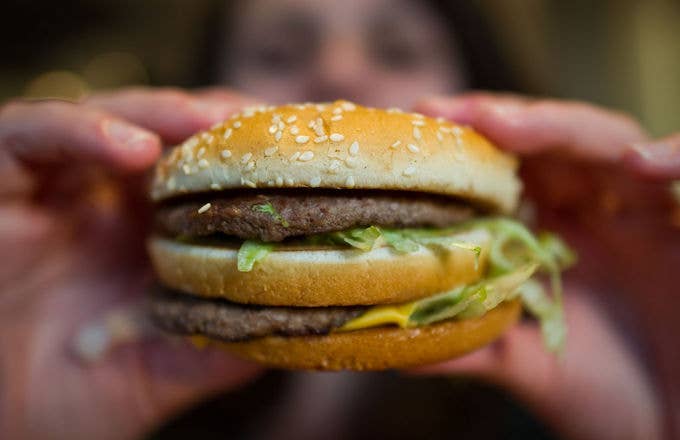
Instead of making empty promises to go to the gym this new year, you might soon be able to take a pill that will simply let you binge on your favorite foods without gaining weight.
According to Science Daily, the pill in question affects the RCAN1 gene. In a study on mice, when the gene was turned off, the rodents could gorge on fatty foods without gaining calories.
"We know a lot of people struggle to lose weight or even control their weight for a number of different reasons,” the study’s lead researcher Professor Damien Keating said. “The findings in this study could mean developing a pill which would target the function of RCAN1 and may result in weight loss."
Removing the RCAN1 increased the mice’s metabolism and expended the calories as heat instead of storing them. This process, as FierceBiotech reports, turns white fat (fat that’s stored) into brown fat (fat that’s burned as heat). The original findings of Keating’s study were published in EMBO Reports. “Mice deficient for RCAN1 have an elevated metabolic rate and are resistant to diet‐induced obesity,” the report concludes.
“Removing RCAN1 had two major effects,” Keating said. “It reduced the storage of fat in dangerous areas around the belly, for example. And then in muscle it actually [caused] muscles to burn more calories at rest.”
If this pill does come to fruition, it should force us to address some of the deeper questions about how our society views “obesity” as a “problem.” As with all diet pills, there is a loaded assumption that fat = bad, one that is problematic on its face.
As of now, scientists including Keating will continue to explore options for creating a pill like this for humans.
“The ideal would be to take some sort of pill that didn’t require you to watch your diet, that didn’t require you to exercise,” Keating said. “Now, that might seem like a pipe dream, but the findings that we have out of this mouse study at least indicate a novel pathway that we might be able to target.”

